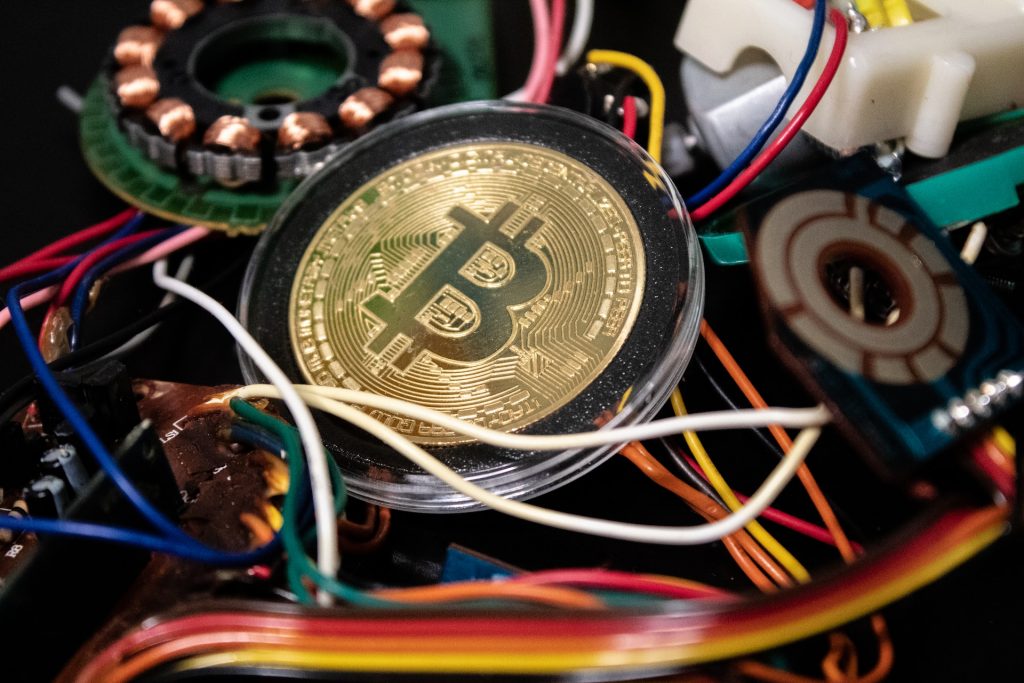The Cashless Society
Digital currency is gaining a bad reputation for many but what are the benefits of a cashless society?
On Wednesday 24th May, Politics in Pubs met at our friendly venue the Welcome Inn, Bury Old Road, Whitefield, M45 6TA (see here for location) to discuss the controversial topic of The Cashless Society.
Many people in the group have voiced strong concerns about the demise of cash as it could give the government greater control over our lives. However, there would also be benefits, such as reducing fraud and criminal activity. Our very own Steve W introduced the meeting with an overview of what the potential benefits of a cashless society could be.
Introduction – Key Points
Prevent Money Printing
Cash allows the printing of money by governments which generates severe consequences for national debt and the economy. Although devaluing the pound helps exports, it is detrimental to imports. The inflation caused by money-printing can be compared to Ancient Rome when Emperor Nero re-minted coins smaller in order to make more of them. [A member commented here that money printing or quantitative easing is implemented simply by central banks creating new money electronically. There may be more physical cash in circulation as a result but this is a symptom, not a cause.]
Easier Taxation
Electronic financial transactions allow a set percentage of tax to be deducted direct from bank accounts, making tax collection easier. Failure to collect the tax due on all income increases the tax burden on everyone else. The relentless increase in civil servants required to administer financial regulations and the tax system – including pursuit of unpaid tax from the cash economy – would be halted.
Verified ID, Legal Status and British Citizenry
Verifying the identity of everyone over the age of sixteen, using biometrics and unique details, before allowing them to have a bank account would enable Government to establish who is a British citizen – entitled to receive the advantages of that citizenry – and who isn’t. It would also reduce benefit fraud. Claimants without the necessary legal and immigration status would be neither eligible nor able to receive payment because they wouldn’t qualify for a bank account. Unique personal data relating to one’s status and finances could be carried on the person, stored in a wristwatch. As more work activity becomes automated and therefore less labour-intensive, Government would be able to pay a universal basic income into the bank accounts of eligible persons required to work less.
Reduce Crime
If there was no cash, people wouldn’t be as vulnerable to robbery or theft from the person. Cash couldn’t be stolen during burglaries or in transit. If all financial transactions were linked to a bank account, illegal activities like drug dealing and prostitution would be made much more difficult. Provision of biometric data for ID verification would deter violent crime like rape and murder, and trace absent fathers failing to provide for their children.
Bank Liquidity
Paying all the nation’s banknotes and coins into the banks would help their liquidity instead of being in people’s homes, pockets and businesses.
Hygiene
Avoidance of banknotes and coins handled by many others would be more hygienic.
Discussion – key points
Cash is a token of value for the exchange of goods and services. Electronic or digital currency serves the same purpose. The British government and its central bank – the Bank of England – can ‘print’ money at will because sterling is a Fiat currency (i.e. it no longer has to be backed by finite commodities like gold or silver). Money printing would be even easier with a central bank digital currency because it could be done with a few keystrokes.
Money doesn’t cause inflation and deflation, politicians and institutions like central banks do: running up debt in the population’s name which ordinary people pay for through the cost of living (like Nero’s re-minted coins, our money buys less than before). Think of the UK’s huge national debt created in the name of ‘services’ to the public (e.g. the billions spent on Covid furlough payments and the abandoned Track and Trace system) – to whom is the interest on that debt paid? Debt interest creates wealth for the elite – e.g. the owners of banks and rich private individuals – to spend on physical or tangible assets, such as property.
Digital currency can be tracked, traced, queried and frozen. This applies to all forms of digital currency whether it is controlled by the state (e.g. a central bank like the Bank of England) or the private sector (e.g. Bitcoin or Ethereum).
Digital currency is programmable, which means it can be controlled by whoever is in charge of the programming.
Central Bank Digital Currency like the one being proposed by the Bank of England (see section on Bank of England Consultation below) would provide leverage to various globalist agenda such as the UN’s Sustainable Development Goals and the infiltration of Environmental, Social and Corporate Governance. It provides a mechanism to control human behaviour via schemes like social credit scoring, carbon footprint monitoring, development of transhumanism, the Internet of Things and other examples of mission creep.
Cash is private and can be spent at will by the bearer without interference by the state or other institutions.
In a cashless society, what would happen to ‘uncomputerised’ events like car boot sales and school fetes? Or the mutual pleasure of putting a ten pound note in a child’s birthday card? Would five years olds be expected to carry a smart phone in order to buy themselves a comic?
There is much potential for electronic finances and digital currencies to be used by authorities and individuals in order to control and coerce the population, such as the suspension of bank accounts or transactions. This is not just a Chinese phenomenon – it is already happening in the UK, with organisations who dare to criticise government policy – like The Free Speech Union, UsforThem and Triggernometry – experiencing suspension of their accounts in recent months:
https://www.spiked-online.com/2023/05/22/now-the-banks-have-joined-the-war-on-free-speech/.
Canada’s Prime Minister Justin Trudeau unveiled himself as ultimate abuser during the truckers’ Freedom Convoy of January 2022. The truckers were protesting peacefully against Canada’s policy of forced vaccination for truckers crossing the Canadian border. Trudeau abused legislation intended for acts of terrorism in order to seize control of the bank accounts and assets of truckers and their supporters in order to break up the protest:
https://www.nytimes.com/2022/02/22/world/americas/canada-protest-finances.html
Conclusion
By the end of the meeting, it became apparent that there would be some support for the benefits of a cashless society if banks, authorities, institutions, politicians and the elite were honourable and diligent in their responsibility to serve the people rather than themselves. But a great deal of concern about the opportunities for abuse outweighed that support. Politics in Pubs is grateful to Steve W for introducing a lively, informative discussion!
Bank of England Consultation
The Bank of England is currently running an on-line consultation exercise on how – not whether – its digital pound should be implemented. There are free text boxes to add your own comments. This consultation is not widely known about and in many people’s opinion is not asking the right question – i.e. whether we need a digital currency before deciding how it might work. See for example this discussion in the Conservative Woman. This provides a great overview of what the Bank of England is proposing and also links to a template objection letter to save you time if you have concerns about this direction of travel.
The Bank of England consultation is open for responses until the 7th June 2023:
The digital pound: A new form of money for households and businesses?
We are growing!
In 2023 we are expanding our activities via regional Politics in Pubs groups and have created a map where you can search for a group near you.
Don’t worry if you can’t find anything nearby as you can start your own group. If you would like to be put in touch with other people interested in talking about politics, please reply to this email letting us know your location and we’ll help to get the conversation started.
We are also planning to network with other free speech groups who have a similar interest in open discussion and debate. If you have such a group and want to appear on our map please get in touch.

